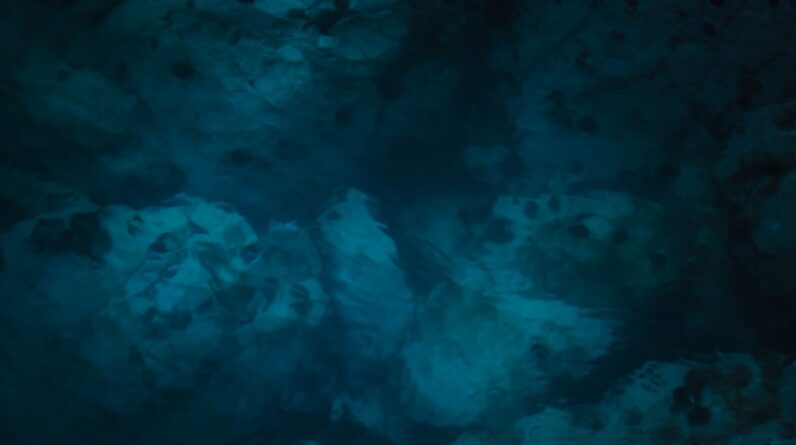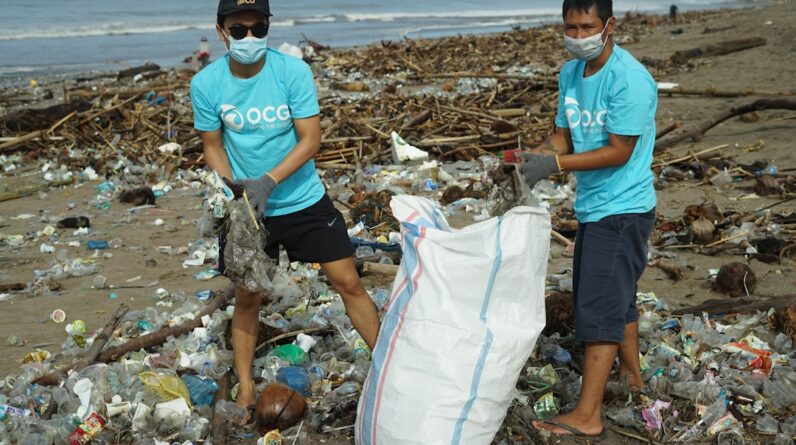
Coral reefs are often referred to as the “rainforests of the sea,” and for good reason. These vibrant ecosystems are teeming with life, providing habitat for countless marine species. As you explore the underwater world, you may find yourself captivated by the kaleidoscope of colors and the intricate structures formed by coral polyps.
Beyond their beauty, coral reefs play a crucial role in maintaining the health of our oceans. They act as natural barriers, protecting coastlines from erosion and storm surges, while also supporting fisheries that many communities rely on for their livelihoods. The significance of coral reefs extends beyond their ecological functions; they are also vital to human well-being.
Millions of people depend on coral reefs for food, income, and recreation. The tourism industry thrives on the allure of snorkeling and diving in these underwater paradises, generating billions of dollars annually. However, despite their importance, coral reefs are facing unprecedented threats.
As you delve deeper into the challenges they face, you will discover how everyday items and human activities contribute to their decline, highlighting the urgent need for collective action to protect these invaluable ecosystems.
Key Takeaways
- Coral reefs are important ecosystems that provide habitat for marine life and protect coastlines from erosion and storms.
- Everyday items like plastic, sunscreen, and construction materials have a negative impact on coral reefs through pollution and physical damage.
- Plastic pollution poses a significant threat to coral reefs, as it can smother and kill coral, and also release toxic chemicals into the water.
- Sunscreen containing harmful chemicals like oxybenzone can bleach and damage coral reefs, leading to their decline.
- Overfishing and agricultural runoff contribute to the destruction of coral reefs by disrupting the balance of marine ecosystems and introducing harmful pollutants.
The Impact of Everyday Items on Coral Reefs
You may not realize it, but the seemingly innocuous items you use daily can have a profound impact on coral reefs. From personal care products to household goods, many of these items contain chemicals and materials that can harm marine life. For instance, microbeads found in exfoliating scrubs and toothpaste are tiny plastic particles that easily wash into the ocean during your daily routines.
Once in the water, these microbeads can be ingested by small fish and other marine organisms, leading to harmful consequences throughout the food chain. Moreover, the packaging of everyday products often contributes to the growing problem of plastic pollution in our oceans. Single-use plastics, such as bags, straws, and bottles, frequently end up in marine environments, where they can smother coral reefs and disrupt delicate ecosystems.
As you consider your own consumption habits, it becomes clear that even small changes can make a significant difference in reducing the impact of these items on coral reefs. By opting for eco-friendly alternatives and reducing your reliance on single-use plastics, you can help protect these vital ecosystems.
Plastic Pollution and Its Devastating Effects

Plastic pollution is one of the most pressing environmental issues facing our oceans today. As you witness the increasing presence of plastic waste on beaches and in marine environments, it becomes evident that this problem extends far beyond aesthetics. When plastic debris enters the ocean, it can break down into smaller pieces known as microplastics, which are often ingested by marine life.
This ingestion can lead to physical harm and toxic exposure, ultimately affecting entire food webs. The impact of plastic pollution on coral reefs is particularly alarming. When plastic waste accumulates on coral structures, it can block sunlight and hinder photosynthesis, which is essential for the survival of symbiotic algae living within corals.
This disruption can lead to coral bleaching, a phenomenon where corals expel their algae and lose their vibrant colors. If conditions do not improve, bleached corals become more susceptible to disease and mortality. As you reflect on the consequences of plastic pollution, it becomes clear that addressing this issue is crucial for the health of coral reefs and the broader marine ecosystem.
Sunscreen and Its Harmful Chemicals
While enjoying a day at the beach or snorkeling in crystal-clear waters, you may apply sunscreen to protect your skin from harmful UV rays. However, many conventional sunscreens contain harmful chemicals that pose a significant threat to coral reefs. Ingredients such as oxybenzone and octinoxate have been shown to cause coral bleaching and disrupt the reproductive systems of marine organisms.
As you consider your sun protection options, it’s essential to recognize that your choice of sunscreen can have far-reaching implications for the health of coral ecosystems. Fortunately, there are eco-friendly alternatives available that provide effective sun protection without harming marine life. Mineral-based sunscreens containing zinc oxide or titanium dioxide are often considered safer options for both your skin and the environment.
By making a conscious effort to choose reef-safe sunscreens, you can enjoy your time in the water while also contributing to the preservation of coral reefs. Your choices matter; every small action can lead to a more significant impact on protecting these vital ecosystems.
Overfishing and Its Impact on Coral Reefs
Overfishing is another critical threat to coral reefs that you may not have considered. As fish populations decline due to unsustainable fishing practices, the balance of marine ecosystems is disrupted. Many fish species play essential roles in maintaining healthy coral reefs by grazing on algae that can otherwise overgrow and smother corals.
When these fish are removed from their habitats, it creates an imbalance that can lead to coral degradation. Additionally, destructive fishing methods such as blast fishing and cyanide fishing cause direct physical damage to coral structures. These practices not only kill fish but also destroy the very habitats that support diverse marine life.
As you reflect on your seafood choices, consider supporting sustainable fishing practices that prioritize the health of both fish populations and coral reefs. By choosing responsibly sourced seafood, you can help ensure that future generations will be able to enjoy the beauty and benefits of healthy coral ecosystems.
Agricultural Runoff and Its Contribution to Coral Reef Destruction

Agricultural runoff is another significant factor contributing to the decline of coral reefs. When fertilizers and pesticides are used in farming practices, they often wash into nearby waterways during rainstorms or irrigation processes. This runoff carries excess nutrients into the ocean, leading to algal blooms that can suffocate corals by blocking sunlight and depleting oxygen levels in the water.
As you consider the broader implications of agricultural practices on marine ecosystems, it’s essential to recognize that sustainable farming methods can mitigate these harmful effects. Practices such as crop rotation, cover cropping, and reduced pesticide use can help minimize runoff and protect water quality. By supporting local farmers who prioritize sustainable practices or even adopting these methods in your own gardening efforts, you can contribute to healthier waterways and ultimately healthier coral reefs.
Concrete and Construction Materials and Their Negative Effects on Coral Reefs
The construction industry also plays a role in the degradation of coral reefs through the use of concrete and other materials that can harm marine environments. Coastal development often involves dredging and filling activities that destroy natural habitats and disrupt local ecosystems. When construction materials are dumped into the ocean or used in coastal projects without proper safeguards, they can smother corals and alter water quality.
As you think about urban development and infrastructure projects near coastlines, it’s crucial to advocate for environmentally responsible practices that prioritize the protection of marine ecosystems. Sustainable construction methods that minimize environmental impact can help preserve coral reefs while still meeting human needs for development. By raising awareness about these issues within your community or supporting policies that promote sustainable coastal development, you can play a part in safeguarding these vital ecosystems.
Conclusion and Call to Action for Protecting Coral Reefs
In conclusion, coral reefs are invaluable ecosystems that require our immediate attention and protection. The threats posed by everyday items, plastic pollution, harmful chemicals in sunscreen, overfishing, agricultural runoff, and construction practices all contribute to their decline. As you reflect on your own lifestyle choices and their impact on these fragile environments, remember that every action counts.
You have the power to make a difference by choosing sustainable products, supporting responsible fishing practices, advocating for environmentally friendly policies, and raising awareness about the importance of coral reefs within your community. Together, we can work towards a future where coral reefs thrive once again—preserving their beauty for generations to come while ensuring the health of our oceans remains intact. Take action today; your choices matter more than you may realize in protecting these vital ecosystems from further harm.
If you’re concerned about the impact of everyday items on our environment, you may also be interested in learning about the importance of tree planting in maintaining the balance of ecosystems. According to this article, increased tree planting can have unintended consequences on the world’s ecosystems if not done carefully. Understanding how planting trees helps the environment and mitigates climate change, as discussed in this article and this article, is crucial for making informed decisions about conservation efforts.
FAQs
What are coral reefs?
Coral reefs are underwater ecosystems composed of calcium carbonate structures produced by coral polyps. They are home to a diverse range of marine life and are vital for the health of the oceans.
Why are coral reefs important?
Coral reefs provide habitat and shelter for a wide variety of marine organisms, protect coastlines from erosion, and support local economies through tourism and fisheries.
What everyday items are harmful to coral reefs?
Some everyday items that are harmful to coral reefs include sunscreen containing oxybenzone, single-use plastics, chemical-based cleaning products, and certain types of fishing gear.
How does sunscreen harm coral reefs?
Sunscreen containing oxybenzone can be toxic to coral reefs, causing coral bleaching and damaging their DNA. It can also disrupt the development of fish and other marine life.
How do single-use plastics harm coral reefs?
Single-use plastics can entangle and suffocate marine life, as well as release harmful chemicals as they break down. They can also smother and damage coral reefs.
What can individuals do to help protect coral reefs?
Individuals can help protect coral reefs by using reef-safe sunscreen, reducing their use of single-use plastics, choosing eco-friendly cleaning products, and supporting sustainable fishing practices.
Why is it important to protect coral reefs?
It is important to protect coral reefs because they are crucial for the health of marine ecosystems, support biodiversity, and provide valuable resources for human communities.





